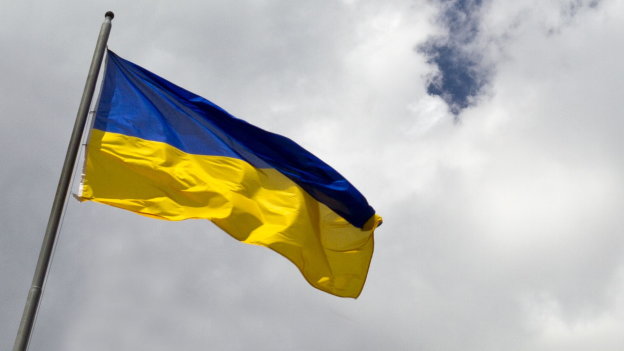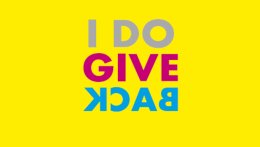The Dr. Dietrich and Dr. Elke Möller Scholarship
 iStock
iStock
The Ukraine: Former guest country of Dr Dietrich and Dr Elke Möller
"Our lives would have turned out differently if we hadn’t studied at Taras Shevchenko National University of Kyiv and the National Technical University of Ukraine "Igor Sikorsky Kyiv Polytechnic Institute".“
The DAAD-Stiftung has awarded the ‘Dr Dietrich and Dr Elke Möller Scholarship’ since 2023, inspired by the ideas of Dietrich and Elke Möller. The scholarship benefits early-career academics at the host universities where the Möllers studied in Kyiv. In this interview, the Dr Elke and Dr Dietrich Möller talk about why they decided to provide donations to make these scholarships possible:
We started by asking them what motivated them to support the DAAD-Stiftung.
Elke Möller: During our time studying in Kyiv we experienced the intensive way that a study visit abroad prompts your personal development. We wanted to give today's students and doctoral candidates from Ukraine that chance. We know that a stay abroad of this kind often shapes your whole life. This type of support is particularly important in wartime, but we must remember that Ukraine will need well-trained specialists for its reconstruction. With support from the DAAD-Stiftung, we want to give something back from what has been granted to us in the course of our lives from having studied at universities in Kyiv.
Dietrich Möller: In my work as an emeritus professor, I was aware on the one hand, that doctoral candidates from Russian colleges of transportation were looking for opportunities for international exchange. On the other hand, Siemens was urgently looking for early-career academics with international experience. Through the Pawel Melnikow-Programme, in 2019 the DAAD started awarding scholarships to doctoral candidates, early-career academics and lecturers, with additional support from Siemens and from our own private funds. We ended our involvement in protest at Russia’s invasion of Ukraine and now we want to use the funds to support exchanges with Ukrainian universities. The DAAD-Stiftung provided the ideal framework for this. We got in touch through our existing relationships with the DAAD.
You have set up the ‘Dietrich and Elke Möller Foundation’. Could you tell us a little more about it?
Dietrich Möller: After the end of our working lives and our return from Moscow in 2019, we looked for an opportunity to consolidate our various charitable activities on a longer-term basis which our sons could later continue. The non-profit ‘Dietrich and Elke Möller Foundation’ was set up in 2019. On the one hand, it supports charitable projects such as the Living Pearl children’s home in Ukraine. On the other hand, we support students, doctors and lecturers at higher education institutions and universities. At present our focus is on Ukraine at Friedrich Alexander University Erlangen-Nuremberg, and now also in the form of the scholarships offered by the DAAD-Stiftung (www.dietrichundelkemoellerstiftung.de).
Does your work have any other focuses beyond financial support?
Elke Möller: We provide additional private donations to supplement project funding from the foundation’s funds. It forms the basis of many activities such as the scholarship offered by the DAAD Foundation. That is just one small but important aspect of our activities. We provide mentoring to the scholarship holders during their stays in Germany and we help with any problems that arise. In addition, I volunteer on the board of an association which focuses on charity projects in Ukraine and Lithuania. This involves taking actual supplies of aid from Germany to people in need, with local teams distributing them in the country.
What are your long-term plans for your collaboration with the DAAD-Stiftung?
Dietrich Möller: There is no time limit on the annual award of ‘Dr Dietrich and Elke Möller Scholarships’. We hope that the profits from the endowment of the Dietrich and Elke Möller Foundation and additional donations will make it possible to award the scholarships annually on a long-term basis.
Could we ask you a question about your career? Did your studies in Kyiv in the Soviet Union hamper your career after German reunification?
Elke Möller: Quite the opposite! We received an excellent education in Kyiv which was supplemented by our doctoral studies in Germany. Our perfect command of a foreign language also opened up additional opportunities.
Dietrich Möller: By the time the Berlin Wall fell, I had already gone through several stages of my career in former East Germany, and I had to start over again in 1991. But we were young and wanted to catch up quickly on lost time. Moreover, at Siemens there weren’t many people who could contribute specialist expertise and language skills to negotiations with customers from Russian-speaking regions. In that way, studying in Kyiv was a great benefit to my career progression.
For the Möllers, spending time in Ukraine shaped not only their careers but also their personal lives: they have now been married for over 40 years and have two adult sons. Dr Elke Möller studied international law in Kyiv and completed her doctorate at Humboldt University in Berlin in 1986. She held various posts before moving to the "Beiten Burkhardt" law firm in Moscow, where she worked from 2006 to 2018.
Dr‑Ing Dr h.c. Dr h.c. Dietrich Möller studied electronics in the Ukrainian capital before embarking on his career in Berlin in 1982. He was awarded his doctorate as an external candidate by the Technical University of Dresden in 1987. He also holds two honorary doctorates. After starting out as a development engineer at Siemens in 1991, he held management positions there until 2019, ultimately acting as CEO of Siemens Russia and Central Asia in Moscow from 2006 to 2019. In addition to his primary career, Dietrich Möller served on the board of the German-Russian Foreign Chamber of Commerce, followed by his appointment to an honorary professorship at the Russian University of Transport from 2013 to 2019. He holds honorary doctorates from that university and the National Research University "Moscow Power Engineering Institute".


